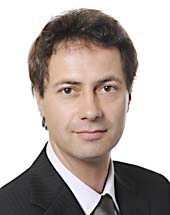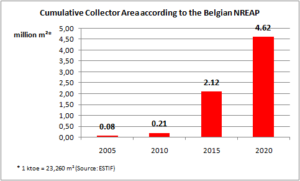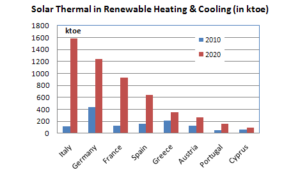Hungary: New Solar Thermal Association and new Incentive Programmes
March 29, 2011
Bela Glattfelder
 The Hungarian solar thermal industry is joining forces: In October 2010, it initiated the founding of the Hungarian solar association Magyar Szolár Szövetség, which will be authorised by the Hungarian administration most probably by the end of March. President of the new association is European Parliament member Bela Glattfelder (Photo), who shows great ambition. In addition to intense national lobbying, the association has joined forces with the European Solar Thermal Industry Federation (ESTIF).
The Hungarian solar thermal industry is joining forces: In October 2010, it initiated the founding of the Hungarian solar association Magyar Szolár Szövetség, which will be authorised by the Hungarian administration most probably by the end of March. President of the new association is European Parliament member Bela Glattfelder (Photo), who shows great ambition. In addition to intense national lobbying, the association has joined forces with the European Solar Thermal Industry Federation (ESTIF).
Source: http://www.europarl.europa.eu
“One of the primary tasks of our association is lobbying for a better position of solar thermal in the Hungarian National Renewable Energy Action Plan (NREAP),” President Bela Glattfelder explains. “Regarding subsidies, we have already had some success.” After all incentive programmes were suspended for one year because of the financial situation, the new Hungarian roadmap – the Széchenyi Plan – focuses on renewable energies and promotes, among others, the installation of solar thermal systems. The corresponding incentive programmes are financed by EU funds and the Hungarian government.
“The Széchenyi Plan came into force on 1 March 2011. It promotes the installation and distribution of solar thermal energy in Hungary," Balázs Szendrő from Tisun’s sales company in Hungary explains. "There is a large demand for solar thermal installations in facilities, hotels, hospitals, municipal and public buildings. The support schemes are area-dependent, but all with relatively high subsidies. Industrial installations can expect support of up to 50-60% of the investment costs, for solar thermal systems in public and municipal buildings even 85% are possible."
To register for the programmes, the completed form and a detailed energy audit have to be submitted. Exceptions are made in case of smaller project. They require no energy audits, and a quick decision is promised. “Applications have been possible since 1 March, but unfortunately, it is not clear yet when the EU funds will be available for the projects,” says Szendrő. “Another problem concerns the suspended incentive programmes for the residential sector in Hungary. The new Széchenyi Plan doesn’t fill this gap. In the industrial and public area, the interest in green investments has already grown, and hopefully it won’t be long until we get visible results.”
The European Solar Thermal Industry Federation (ESTIF) has already been collaborating with its new Hungarian member. As a result, two events will take place in Budapest in early May: the ESTIF General Assembly in spring and the annual conference of the European RHC-Platform, which is held under the auspices of the Hungarian presidency of the European Union. Furthermore, the Solar Thermal Action Plan for Europe, published by ESTIF in January 2007, will now be translated into Hungarian.
“ESTIF welcomes all national solar thermal associations as they are key to our success,” ESTIF Secretary General Xavier Noyon states. Hungary has foreseen the use of solar thermal energy in its NREAP, with a 4.4% share in renewable heating and cooling by 2020. But according to Noyon, its full potential has so far not been realised. “Incentive legislation, especially concerning financial incentives, remains a matter of national policy and lobbying,” Noyon explains. “Which is why ESTIF is pleased to have this newly created national solar thermal association as its member from Hungary. The industry association chaired by Mr Glattfelder will certainly contribute to increasing solar thermal visibility and its share of the market in Hungary.”
More Information:
http://www.maszolar.hu
http://www.rhc-platform.org/cms/index.php?id=84
http://www.tisun.hu
http://www.estif.org

